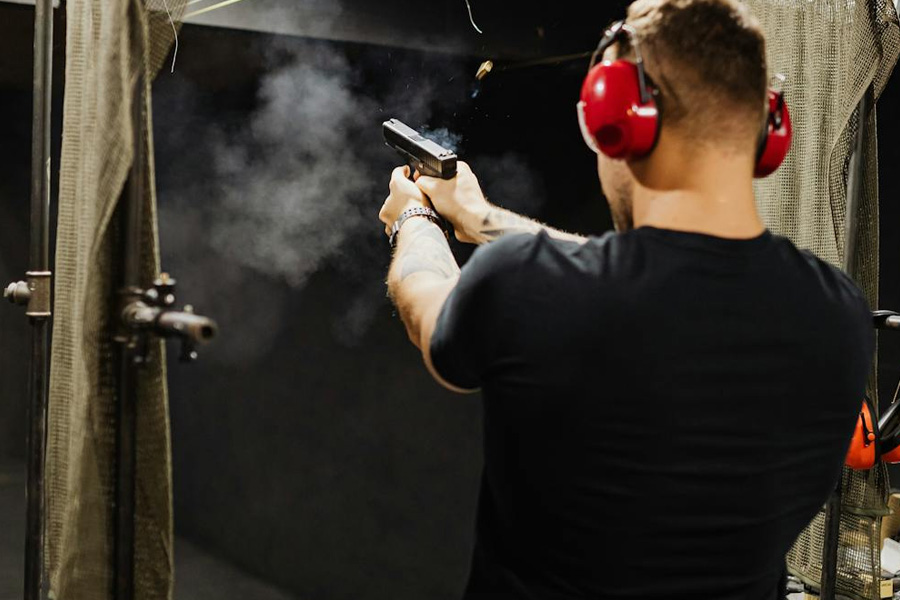
Image Source: www.pexels.com
Gunsmithing involves a combination of engineering, creativity, and passion for firearms. Becoming a gunsmith can turn your passion for building custom weapons, repairing vintage pieces, or ensuring safety and accuracy into a lucrative career. Gunsmithing school provides the expertise and training needed to excel.
Starting Your Journey: Certified Courses As The Foundation
When starting a gunsmith career, enrolling in a certified gunsmithing course is a crucial first step. These programs are tailored to provide a comprehensive understanding of firearms, from their history and mechanics to repair and customization. If you’re wondering how to get into gunsmithing, these courses are your gateway, offering hands-on training and theoretical knowledge to prepare you for real-world applications. Most schools begin with entry-level gunsmithing modules that introduce basic firearm concepts and gradually advance to more specialized skills like machining, metal finishing, and engraving. Certified courses are designed to meet industry standards and get students ready for certification or licensing, if necessary, for individuals looking for a clear path on how to become a gunsmith professional.
Gunsmithing – How To Get Started
You should enroll in professional training programs to learn the basics of gunsmithing. Courses in certified gunsmithing provide the theoretical and practical background to understand firearms and safety regulations. These programs are ideal for both beginners and hobbyists.
Throughout your course, you will work with different firearms and learn how to diagnose, repair, and maintain them. Modules are often devoted to metalworking, barrel-fitting, precision shooting mechanics, and stock refinishing. By the time you complete your education, your confidence will allow you to pursue entry-level positions in gunsmithing.
What To Expect At Gunsmithing Training?
Comprehensive coursework:
Most gunsmithing programmes cover the essentials such as design and safety, compatibility with ammunition, and legal issues. Practical sessions will include both theoretical and hands-on training.
Hands-On Practice:
Gunsmithing can only be learned by doing. Workshops are common in most programs where students learn to machine, weld, and do fine detailing. Also, you’ll learn to use special tools and equipment specific to your trade.
Firearm customization:
Beyond repairs, many gunsmiths cater to customers looking for custom designs. The training covers techniques for customizing firearms.
Safety and Compliance:
Assuring safe firearms is the cornerstone of a gunsmith’s responsibility. Training focuses on safety protocols and conformity with industry regulations, ensuring that gunsmiths follow the law.
Building A Career Following Gunsmithing College
When you finish your training program, you’ll know exactly how to become a professional gunsmith. After obtaining your certification, you can take many different career paths.
- Firearm Repair technician:Work for a gun retailer or repair facility, troubleshooting and fixing problems.
- Custom Gunsmith:Specializes in designing and creating bespoke firearms for shooting enthusiasts or collectors.
- Manufacturer:Helped with production, quality control, and other duties at a firearm manufacturer.
- Independent Gunsmith: Create a workshop catering to local or niche clients.
Continuous Education In Gunsmithing
Gunsmithing combines innovation and tradition. As new firearm technologies are developed, it is vital that gunsmiths keep abreast of the latest developments through workshops or advanced certifications. Many professionals also belong to trade organizations, which offer networking, industry updates, and exclusive training.
Challenges & Rewards In The Field
Gunsmithing involves patience, meticulousness, and an unwavering commitment to excellence. Even though it can take some time to master these skills, the rewards are worth the effort. Transforming a malfunctioning rifle into a beautiful work of engineering or artwork is a rewarding experience. As your knowledge grows, you can offer more specialized services, boosting your earning potential.
Conclusion
A journey to becoming a competent gunsmith begins with training and practice. If you enroll in certified programs and learn the core principles that govern this trade, you are well on your path to beginning a career as a Gunsmith. No matter whether you’re interested in the restoration, repair, and customization of firearms, the skills that you develop will set the foundation for an exciting career. You can invest in your career by taking the first step to learn how to become a gunsmith. With dedication and a lifelong commitment to learning, you’ll learn how to become a gunsmith expert capable of shaping the future in firearms craftsmanship.








